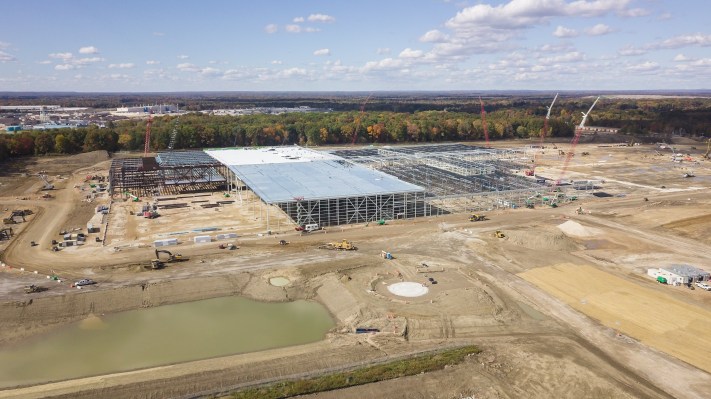The U.S. Department of Energy is reviving an old loan program and its first recipient is the joint battery venture between General Motors and LG Energy Solution. The $2.5 billion loan issued to GM and LG Energy will be used to help finance the construction of new lithium-ion battery cell manufacturing facilities.
Reuters was first to report the news.
The loan to Ultium Cells, the name of the GM-LG joint venture, is expected to close in the coming months and will be used for its upcoming facilities in Ohio, Tennessee and Michigan. GM and LG have plans to invest more than $7 billion to jointly build three battery plants. Production at the Ohio factory is expected to begin in August. In Tennessee, production is scheduled for late 2023 and in Michigan for 2024.
The funds come from the government’s Advanced Technology Vehicles Manufacturing (ATVM) loan program, which was tasked with issuing up to $17.7 billion in federal loans and hasn’t funded a new loan since 2010.
Tesla was one of the last automakers to receive a loan back in 2009, when the DOE loaned the EV-maker $465 million to help build its Model S sedan. To date, the program has dolled out $8 billion for products that have supported the production of more than 4 million advanced technology vehicles, according to the DOE. Ford and Nissan also received $5.9 billion in 2009 and $1.4 billion in 2010, respectively.
While the plan is the first time the DOE will issue a loan exclusively for a battery cell manufacturing project under the vehicle program, it’s not the first time we’re seeing governments get involved in securing battery supply.
Joint ventures between automakers and battery chemistry and cell manufacturers have been cropping up regionally in recent years in response to a de-globalizing post-COVID world. Governments in Germany, South Korea and China have already begun financially backing local battery manufacturing to help shore up supply chains.
The resurrected DOE loan program suggests the Biden Administration is also keen to secure its supply chain as part of its plan for half of all new passenger vehicles sales to be EVs by 2030.
The DOE did not respond in time to TechCrunch’s questions about whether it would continue to fund battery projects. In April, the agency said it had issued a conditional commitment for a $107 million loan to Australian graphite miner Syrah Resources to expand en EV battery parts plant in Louisiana. Graphite is a crucial piece of the anode of lithium ion batteries.
The agency said in February it plans to provide $3.1 billion in funding from Biden’s Bipartisan Infrastructure Law to make more batteries and components in America, boost domestic supply chains and create jobs.
The DOE told Reuters the department has received more than $18 billion in loan requests from the auto program and expects another $5 billion to come through. The department also said more loans will be issue, but did not provide a specific timeline.
